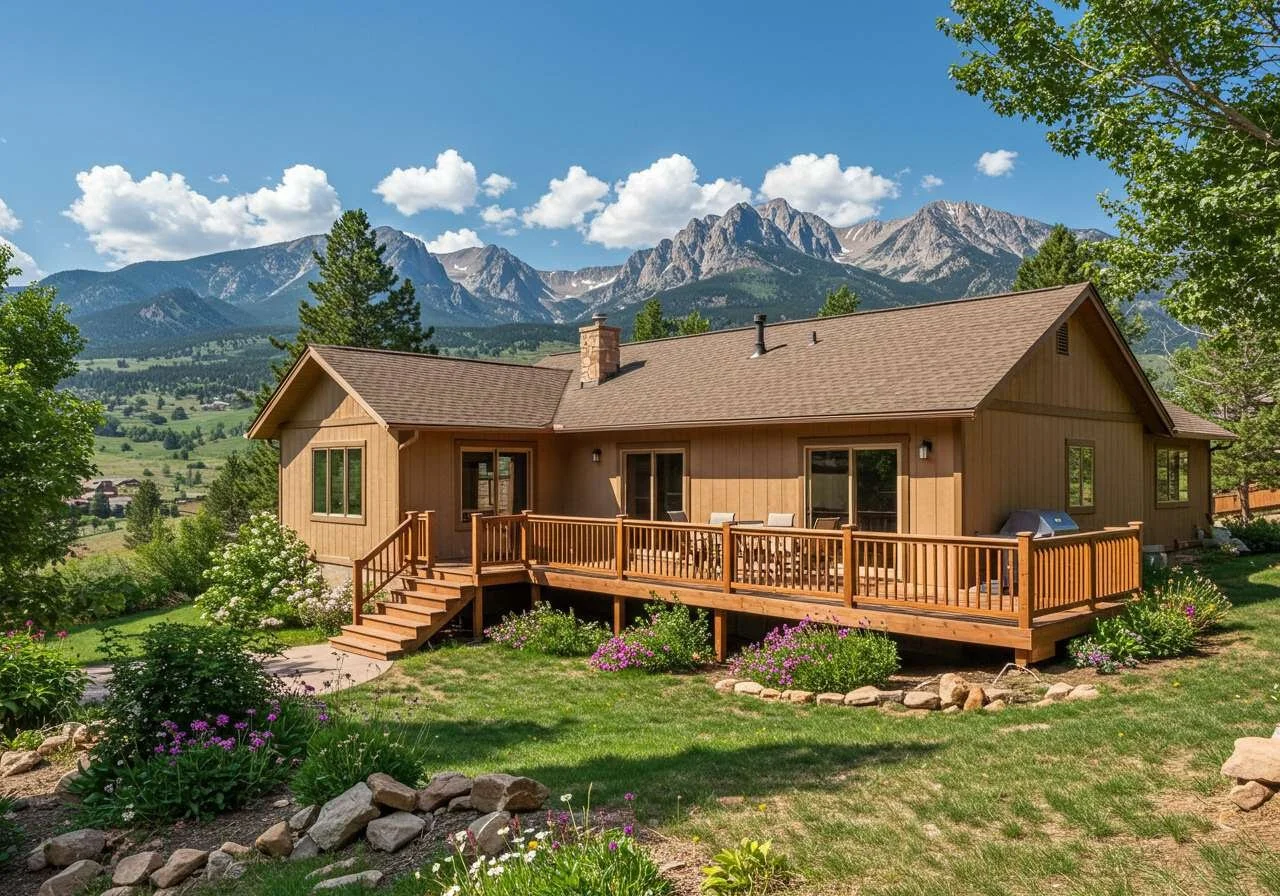Living along the Colorado Front Range means your deck faces some of the most unpredictable and challenging climate swings in the country. From Littleton to Castle Rock and Highlands Ranch to Golden, the relentless freeze-thaw cycles, rapidly shifting temperatures, and varying levels of moisture can wreak havoc on traditional decking systems. Are you wondering how to engineer a deck that will thrive under these conditions and resist time, weather, and wear? Let’s break down what makes local deck design unique—and what you need to know before your next project.
Best Deck Materials and Fasteners for Colorado Freeze-Thaw Durability
Most homeowners don’t realize just how much Colorado’s elevation and microclimates influence deck longevity. The frequent freeze-thaw cycles can cause wood to expand and contract, leading to cracks, warping, and—if moisture is trapped—accelerated rot. Standard lumber and fasteners simply aren’t up to the job. So, which materials give the best return on investment?
-
Composite Decking: Modern composites are engineered for superior moisture resistance and stability, ideal for Colorado’s fluctuating temperatures. Brands such as Trex or TimberTech are popular options locally for their warranty-backed resilience.
-
Pressure-Treated Lumber: If you prefer traditional wood, select pressure-treated or kiln-dried options rated for ground contact. These are more resistant to both decay and insect damage.
-
Stainless Steel or Coated Fasteners: Choosing the right fasteners is critical. Galvanized or stainless steel deck screws and hidden fastener systems help prevent rust and provide a secure, movement-tolerant hold as boards expand and contract.
-
Moisture Barriers: Applying joist tape or installing drainage systems like under-deck troughs can dramatically reduce water infiltration and protect structural components from rot.
Why Standard Designs Can Fail in Colorado
Decks built to generic national standards often overlook the unique challenges presented by Colorado’s Front Range. Without the right materials and construction details, you risk premature structural decay—and higher long-term costs. Curious why your neighbor’s deck had to be replaced so soon? It’s likely due to mistakes in material selection, insufficient drainage, or cut corners on fastener quality.
Deck Drainage, Expansion, and Local Building Codes for Long-Lasting Results
What else should you consider when planning a new deck or replacement? Effective water management and compliance with local codes are non-negotiables for success in this region.
-
Deck Drainage Systems: Proper slope, spacing between boards, and hidden drainage products prevent water from pooling on deck surfaces or around the ledger board. This is especially important in places like Parker or Aurora, where moisture can linger after snowmelt or rainfall.
-
Handling Expansion and Contraction: All decking materials expand and contract, but the range is amplified by Colorado’s daily temperature swings. Expert installation—including correct spacing and specialized fasteners—accommodates this movement, preventing buckling or loose boards.
-
Local Building Code Nuances: The Front Range has specific requirements regarding ledger attachments, flashing, and post anchoring to handle freeze-thaw stress. Always consult your local city for current codes, or schedule a free inspection with professionals who know regional regulations.
Professional Tips for Deck Longevity and Safety
-
Schedule regular inspections, especially after harsh winters.
-
Clean and seal your deck annually to prevent moisture intrusion.
-
Upgrade aging boards or fasteners before signs of rot or corrosion spread.
Get Expert Help from Local Deck Specialists
Building a deck in Colorado isn’t just about aesthetics—it’s about engineering for longevity, safety, and low maintenance in a tough climate. Wondering if your current deck is up to the task, or ready to design a replacement with premium materials and expert craftsmanship? Contact our team today for a free, professional evaluation tailored to your Front Range home. Let’s make sure your deck stands strong, year after year.
Disclaimer: Coverage areas, inspection, and build processes are subject to change. We recommend all homeowners seek professional input and review local codes before starting any deck project.

